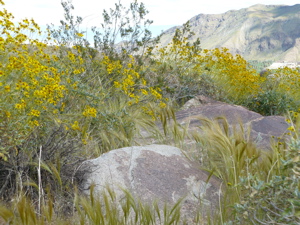
“…the extreme fertility of her garden formed at once a preoccupation and a challenge … she seemed not to seek for order, but to allow an overflowering … she planted every kind of flower that she could … planted thickly and hastily, without stopping to think … if she thought of beauty at all, she certainly did not strive for it in her garden.”
The way Eudora Welty described Mrs. Larkin here in A Curtain of Green resembles the way Darwin described natural selection in The Origin of the Species. In another excerpt the way Eudora Welty described Mrs. Larkin resembles the way some contemporary theologians justify the ways of God, in a way that merges God and natural selection:
“…so helpless was she, too helpless to defy the workings of accident, of life and death, of unaccountability … Life and death, which now meant nothing to her but which she was compelled continually to wield with both her hands, ceaselessly asking, Was it not possible to compensate? to punish? to protest?”
Mrs. Larkin’s garden reminds me of Eden in Genesis and, at the same time, of the old and wild garden of life that Darwin described. An image in the story that blends the two gardens together is the pear tree at the center of the garden in A Curtain of Green. Eudora Welty mentioned it three times, and the one that I cannot forget is:
”The shadow of the pear tree in the center of the garden lay callous on the ground.”
It frightens me to associate that image with the tree of life, the one in Genesis and the one in The Origin of the Species.
Fecundity and mortality are bound together in the intricate molecules of life, bound together in the struggle for life. They are inexhaustible – to exhaust one is to exhaust the other. In A Curtain of Green, the story of Mrs. Larkin, Eudora Welty wrote: “against that which was inexhaustible, there was no defense.”
At the end of A Curtain of Green, the young man in the story “ran out of the garden.”

Leave a comment
Comments feed for this article